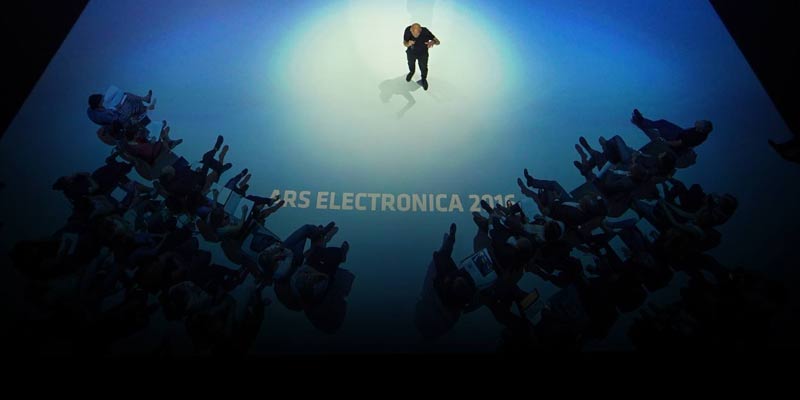Science and Art in Dialog
Fraunhofer and Ars Electronica Focus on Complexity in Art and Medicine
Interview with Bianka Hofmann of Fraunhofer MEVIS on the Ars Electronica Blog
(June 3, 2018 / Berlin, Linz) The Fraunhofer Gesellschaft will hold the next event in its Science and Art in Dialog series on Tuesday, June 5, 2018 in Berlin. The topic of this panel discussion is complexity in art and medicine. Horst K. Hahn, director of Fraunhofer MEVIS–Institute for Medical Image Computing, and Gerfried Stocker, Ars Electronica artistic director, will kick off the evening’s program with keynote speeches that take wide-ranging approaches to the subject of complexity: What impact does the constantly increasing quantity of information and imaging data have on medicine; what role will artificial intelligence play in this area; and how can artists contribute to making the growing complexity of new technologies comprehensible and thus act as catalysts of the social discourse? Taiwanese artist Yen Tzu Chang will then address the future human-machine relationship in the field of surgery in her performance entitled “Whose Scalpel.”
Fraunhofer Enables Dialog between Art and Science
Since 2003, the Fraunhofer Gesellschaft has regularly presented art exhibitions that deal with the connections between the domains of science and art. This effort is designed to give artists and scientists a chance to engage in a dialog, to establish contacts with one another and to explore what they have in common. The pursuit of this mission is also what brought Fraunhofer to Linz-based Ars Electronica, since both institutions sponsor residency programs meant to bring scientists and artists together. Artists are given the opportunity to spend stays of several weeks duration at the labs and workshops of leading research institutions, where they can get acquainted with staff scientists, their work and the technologies they work with.
How inspiring such a process of exchange can be is demonstrated by the project that Taiwanese artist Yen Tzu Chang produced at Fraunhofer MEVIS in Bremen in conjunction with the European Digital Art and Science Network, an initiative that focuses on education and young people. Her STEAM Imaging residency provided Yen Tzu Chang with access to the latest research and technologies, and particularly with MeVisLab, Fraunhofer MEVIS’s expert platform for the development of medical software systems. The artist worked together with scientists to design workshops for school kids and also created a work of art during her residency, the performance installation entitled “Whose Scalpel.”
“Residencies have proven to be a fruitful format for up-close-and-personal encounters between art and science,” said Veronika Liebl who, as co-director of the Ars Electronica Festival, has been working together with Fraunhofer MEVIS for many years now. “Residencies provide space for intensive experimentation, and their results make it possible for the general public to see and grasp complex scientific topics and their technological consequences.”
Ars Electronica Residency Network Spans the World
Ars Electronica in Linz, Austria has been organizing such residencies for years with such facilities as the European Organization for Nuclear Research (CERN), the European Space Agency, the European Southern Observatory and Queensland University in Australia. In addition to staging interdisciplinary and intercultural exchange, a main part of the mission is to nurture artistic qualities and to open up new areas of activity for artists in research and innovation—for instance, in conjunction with the European Commission’s STARTS Initiative, the aim of which is to integrate art and creativity into innovation processes in the fields of information technology and communications.
http://www.flickr.com/photos/arselectronica/36264135374/
Whose scalpel / Fotocredit: Florian Voggeneder / Printversion
http://www.flickr.com/photos/arselectronica/37099264385/
Whose scalpel / Fotocredit: Florian Voggeneder / Printversion

